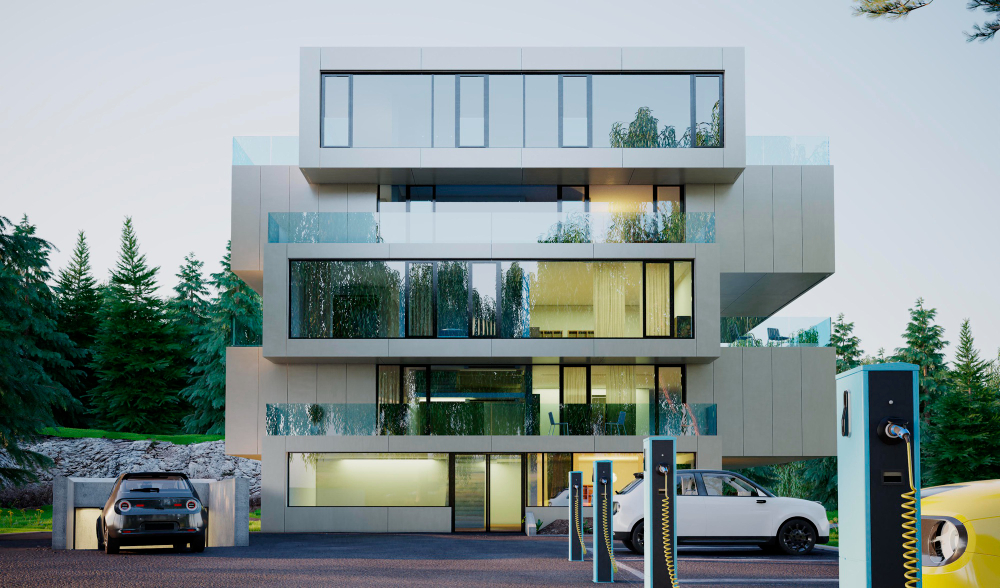
In the ever-evolving landscape of community living, Homeowners' Associations (HOAs) and co-housing have emerged as distinct models, each offering unique avenues for fostering connection, shared responsibility, and a sense of belonging. Let's look deeper at the benefits of HOAs and co-housing and how they contribute to a fulfilling communal lifestyle. Shared Responsibility and Maintenance Homeowners' Associations (HOAs) operate on the principle of shared responsibility. Homeowners contribute to collective funds allocated to maintain and enhance common areas. This collaborative effort ensures that amenities such as parks, swimming pools, and landscaping remain well-maintained, relieving individual homeowners from constant upkeep. By distributing the costs and responsibilities, HOAs create an environment where residents can enjoy the benefits of communal spaces without the stress of some maintenance. Cohesive Aesthetics and Property Values One of the distinctive features of HOAs is their commitment to cohesive aesthetics. These associations often enforce architectural guidelines that promote uniformity and a harmonious visual appeal within the community. Beyond enhancing the neighborhood's beauty, this attention to detail boosts property values. Well-maintained areas with consistent designs attract potential buyers, making homes within HOAs appealing for long-term investments. Conflict Resolution and Community Harmony A pivotal role of HOAs is to foster community harmony through structured conflict resolution. In disputes or violations of community rules, HOAs serve as impartial mediators, striving to maintain a peaceful and cooperative atmosphere. By providing a framework for resolving conflicts, HOAs contribute to a sense of fairness and encourage residents to adhere to shared standards. This commitment to harmony promotes a welcoming and tranquil environment for all. Resource Sharing and Collaborative Living Co-housing communities take a different approach, emphasizing collaborative living and resource sharing. In these communities, residents pool resources such as communal spaces, tools, and childcare responsibilities. This model promotes efficient resource utilization and nurtures a close-knit community where mutual support is integral. Residents benefit from shared skills, time, and expertise, creating an atmosphere of interdependence and camaraderie. Social Connections and Mutual Support Co-housing communities are renowned for fostering deep social connections among residents. With shared spaces and regular communal activities, co-housing naturally encourages interaction and relationship-building. The resulting support network is precious for individuals seeking a strong sense of belonging and emotional well-being within their living environment. This inherent social fabric creates a support system that transcends traditional neighborly relationships. Flexibility and Personal Space In co-housing, the balance between community and personal space is carefully considered. While communal living is a central tenet, residents also have private living quarters to retreat and enjoy solitude. This blend of shared experiences and personal sanctuaries ensures that residents can participate in communal activities while maintaining individual privacy—a critical factor in the appeal of co-housing. Decision-Making Power and Autonomy Co-housing empowers residents with a significant degree of decision-making power. From financial matters to community rules, decisions are made collectively through consensus-based processes. This participatory approach ensures that all members have a say in shaping the community's culture, values, and priorities. The resulting sense of ownership strengthens bonds among residents and creates a shared investment in the community's success. In conclusion, the choice between Homeowners' Associations (HOAs) and co-housing communities hinges on personal values, preferences, and the desire for a vibrant communal experience. HOAs offer shared responsibility, cohesive aesthetics, conflict resolution, and enhanced property values. Conversely, co-housing emphasizes collaborative living, social connections, personal space, and decision-making autonomy. Both models enrich the concept of community living, offering avenues for individuals to connect, thrive, and create lasting memories within the tapestry of shared spaces and experiences. Whether through the structured framework of an HOA or the collaborative spirit of co-housing, the evolution of community living continues, presenting opportunities to forge meaningful connections and create a sense of belonging in the modern world.
Enter your email address and we will send you a link to change your password.